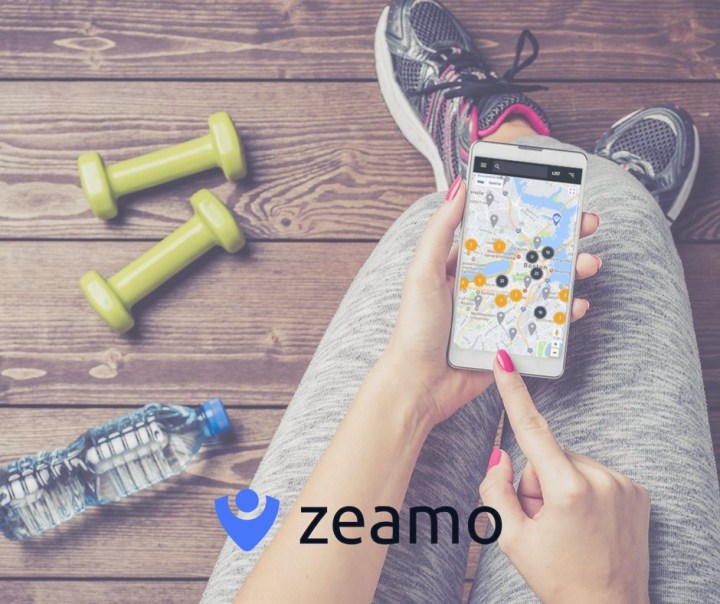
The Zeamo app is the largest search directory of its kind and continues to grow in American cities and urban corridors, as well as in Canada, Europe, and Australia. The app allows users to filter gyms according to their amenity preferences, meaning users can drill down into gyms with pools, saunas, child care, massage, physiotherapy, and even air conditioning. The app then allows users to buy a day pass that is good until midnight of the day it’s activated, and offers the option of buying weekly and monthly passes as well.
The app has come to prominence with the emergence of boutique fitness studios, which don’t require cumbersome memberships, long-term commitments or administrative fees. Zeamo has partnership agreements with more than 500 of these types of gyms including the brands HealthSPORT, Balance, Fitness SF, Active Sports Clubs and Club Metro USA.
The company’s most recent expansion was announced in October 2017, when Zeamo added Boston Sports Clubs and Healthworks. Currently, the New York City-based startup is paired with more than 500 gyms in the United States, and over 100 in international destinations like Dublin, Montreal, London, Munich, and Sydney.
Day passes are understandably diverse, ranging from a base price of $7.50 up to $90 for the exclusive Chuan Spa and Health Club at Chicago’s Langham Hotel. While Zeamo hasn’t negotiated discounted rates for its users, Zeamo enthusiasts can potentially save hundreds of dollars on long-term gym membership fees.
The model smartly targets a number of demographics that have eagerly adopted the new modality. It’s perfect for business travelers, tourists, and seasonal exercisers. The app has also drawn a surprising amount of attention from millennials, a demographic that has widely adopted the so-called “gig economy,” preferring to make lifestyle choices on the fly, rather than plunging into a long-term commitment.
The company turns a year old this month, following a soft release in October 2016. Zeamo is the brainchild of founder and CEO Paul O’Reilly-Hyland, an avid sports enthusiast with deep knowledge of the venture capital market and the technology sector. The founder conceptualized the app when he was training for a triathlon and found it challenging to find a gym with a pool quickly and easily.
Zeamo got another significant boost in May 2017 when the company managed to lure longtime fitness industry executive Mark Smith to not only invest in the company but join as the company’s executive director and member of the board of directors. Smith, hot off a stretch as CEO of 24 Hour Fitness following engagements at Town Sports International and City Fitness in New Zealand, brings a significant network and expertise to the role.
“His knowledge and contacts will help bring us to the next level,” O’Reilly-Hyland said. “He is a proven industry expert and has already demonstrated his commitment and passion.”
Smith also expressed his appreciation for Zeamo’s innovative model and global expansion.
“The digitization of the fitness industry is long overdue, and Zeamo is bringing a smart, succinct user experience to the business which gym owners and consumers are going to appreciate and which our corporate partners are in dire need of,” Smith said.
Editors' Recommendations
- Google is launching a powerful new AI app for your Android phone
- The 10 best apps for your 2024 New Year’s resolutions
- I found a huge problem with the new ChatGPT iPhone app
- Report finds most period tracking apps don’t protect privacy
- Do mental health apps really help? We asked the experts


